Δευτέρα 31 Δεκεμβρίου 2007
Merry Christmas and A Happy New Year, Mother Earth !
Αναρτήθηκε από
Standin'AtTheCrossroads
στις
9:33 μ.μ.
0
σχόλια
![]()
![]()
Ετικέτες greece, Happy New Year, merry christmas, videos
Κυριακή 30 Δεκεμβρίου 2007
Quintessence.'Some early footage of the band, filmed at the Glastonbury festival in 1971
Αναρτήθηκε από
Standin'AtTheCrossroads
στις
3:05 π.μ.
0
σχόλια
![]()
![]()
Ετικέτες Quintessence, uk, videos
Σάββατο 29 Δεκεμβρίου 2007
Quintessence - Quintessence ( UK Island Rec. 1970)
 Quintessence The fifth essence. The ancient Greeks said there are four elements or forms in which matter can exist- fire, or the imponderable form; air, or the gaseous form; water, or the liquid form; and earth, or the solid form. The Pythagoreans added a fifth, which they called ether, more subtile and pure than fire, and possessed of an orbicular motion. This element, which flew upwards at creation, and out of which the stars were made, was called the fifth essence; quintessence therefore means the most subtile extract of a body that can be procured. It is quite an error to suppose that the word means an essence five times distilled, and that the term came from the alchemists. Horace speaks of "kisses which Venus has imbued with the quintessence of her own nectar.""Swift to their several quarters hasted thenThe cumbrous elements- earth, flood, air, fire;But this ethereal quintessence of heavenFlew upward ... and turned to starsNumberless as thou seest."
Quintessence The fifth essence. The ancient Greeks said there are four elements or forms in which matter can exist- fire, or the imponderable form; air, or the gaseous form; water, or the liquid form; and earth, or the solid form. The Pythagoreans added a fifth, which they called ether, more subtile and pure than fire, and possessed of an orbicular motion. This element, which flew upwards at creation, and out of which the stars were made, was called the fifth essence; quintessence therefore means the most subtile extract of a body that can be procured. It is quite an error to suppose that the word means an essence five times distilled, and that the term came from the alchemists. Horace speaks of "kisses which Venus has imbued with the quintessence of her own nectar.""Swift to their several quarters hasted thenThe cumbrous elements- earth, flood, air, fire;But this ethereal quintessence of heavenFlew upward ... and turned to starsNumberless as thou seest." Review
Reviewby Richie Unterberger
While Quintessence's second album had a guileless sincerity to its spiritual striving that was uncommon in pop music, it's very much a relic of its hippie age.
 The good points? An uncalculated, genuine wish to both reflect the era's ideals and to use its music as a tool to achieve them, as well as a willingness to blend aspects of jazz,
The good points? An uncalculated, genuine wish to both reflect the era's ideals and to use its music as a tool to achieve them, as well as a willingness to blend aspects of jazz,  The bad points? An absence of conventional songwriting chops, exacerbated by the band's tendency to ramble on in formless jam-like passages, though actually none of the tracks here exceed six minutes. Certainly it's eclectic, with a commune-like vibe permeating the proceedings, though the recording's quite professional. "Jesus, Buddha, Moses, Gauranga" sounds rather akin to the We're Only in It for the Money-era Mothers of Invention, though minus any hint of satire or irony in the over the top beatific lyrics. Overall, though, it feels a little like listening to the house rock band of a pan-religious cult that doesn't have anything of particular value to sell. The 2004 CD reissue on Repertoire adds a live version of "Jesus, Buddha, Moses, Gauranga" (originally released on the first pressing of the 1970 Island compilation Bumpers) as a bonus track.
The bad points? An absence of conventional songwriting chops, exacerbated by the band's tendency to ramble on in formless jam-like passages, though actually none of the tracks here exceed six minutes. Certainly it's eclectic, with a commune-like vibe permeating the proceedings, though the recording's quite professional. "Jesus, Buddha, Moses, Gauranga" sounds rather akin to the We're Only in It for the Money-era Mothers of Invention, though minus any hint of satire or irony in the over the top beatific lyrics. Overall, though, it feels a little like listening to the house rock band of a pan-religious cult that doesn't have anything of particular value to sell. The 2004 CD reissue on Repertoire adds a live version of "Jesus, Buddha, Moses, Gauranga" (originally released on the first pressing of the 1970 Island compilation Bumpers) as a bonus track.
Quintessence (English band)
From Wikipedia, the free encyclopedia
Quintessence was a band formed in April 1969 by Raja Ram in Notting Hill, London, England. The style was a mixture of jazz and progressive rock with an influence of music from India. This trend in music started by Quintessence would later resurface in the 1990s in the form of Goa trance.
Quintessence were formed in April 1969 by Raja Ram in Ladbroke Grove, Notting Hill. They played a hybrid of jazz, progressive rock and Indian Music.
 The original line-up included Shiva Jones (voice, keys, percussion), Raja Ram (flutes, percussion), Sambhu Baba (bass, guitar), Maha Dev (guitar), Allan Mostert ((guitar), and Jake Milton (drums, percussion). Quintessence were tagged a 'spiritual' band and were playing new age rock before the term was born.
The original line-up included Shiva Jones (voice, keys, percussion), Raja Ram (flutes, percussion), Sambhu Baba (bass, guitar), Maha Dev (guitar), Allan Mostert ((guitar), and Jake Milton (drums, percussion). Quintessence were tagged a 'spiritual' band and were playing new age rock before the term was born.Although their evangelism in retrospect might seem to be a bit over the top, the music retains its beauty created by some highly individual souls. They rehearsed in All Saints Hall which was a converted church near Portobello Road, and recorded 3 albums for Island Records between 1969 and 1971. two further albums were recorded in 1972 for RCA. The 'Self' entitled first of these was their best with studio material on side one, and the band playing live at Exeter University December 11, 1971 on side two. Their live set was usually mostly improvised as they avoided playing the same riff twice or going into a routine thing. Not unlike the Grateful Dead, they did a lot of collective jamming with an intention to trance out their colourful audiences by a forceful combination of the chanting of mantras with the Krishna flute lines and the lyrical guitar soloing. Often the local Hare Krishna disciples would provide an extra percussion section to the already steamy proceedings. Quintessence had their household guru in Swami Ambikananda. They built a reputation on solid club work and were deemed London's Underground Sensation in 1970. Besides appearing at the first two Glastonbury Festivals (then called 'Faires'), in 1970/71, they also were invited to play the Montreux Jazz Festival at a time when jazz was still being played there. At their peak they sold out the Royal Albert Hall twice.
Although Quintessence played many hundred of concerts and festivals all over Europe, they never made it to the United States. Although a concert at New York's Carnegie Hall was already lined up in early 1972, they didn't make it because Shiva and Maha Dev were asked to leave the band by Raja Ram in spring 1972. Shiva and Maha Dev went on to form the short-lived outfit called Kala.
 With ego clashes and problems on many frontiers, Kala quickly folded and Quintessence, now trying to make it the body without a head, and bereft of a sense of purpose, direction and being victims of the changing times, played on into the eighties, then slowly drifted into limbo.
With ego clashes and problems on many frontiers, Kala quickly folded and Quintessence, now trying to make it the body without a head, and bereft of a sense of purpose, direction and being victims of the changing times, played on into the eighties, then slowly drifted into limbo.Jake Milton went on to form Blurt with his brother Ted Milton.
(Maha Dev) has recently released his first solo album.
"The band turned down a US record deal negotiated by Chris Blackwell (Island Records) and didn't play at Carnegie Hall or tour the USA because four of its members wanted a larger monetary advance. This disappointed Chris Blackwell greatly and he dropped the band from the label. The band signed with RCA and recorded one album with Shiva and Maha Dev. Raja Ram unexpectedly 'fired' Shiva and Maha Dev after that album with RCA was recorded.
"The 'real' reason that Shiva's band Kala broke up was because Bradley's Records (a subsidiary of ATV) changed their policy towards their artists. They no longer wanted bands to make albums and insisted on them being singles pop artists. They wanted Shiva to wear a 'glitter suit', and when he refused, the senior management of ATV broke up the band by taking all of the equipment back and canceling their dates. It had nothing to do with 'ego' clashes. I don't know where this 'Nik' got his info from." - directly quoted from Shiva/Phil Jones


Sambhu Babaji Bass
Dave Codling Guitar
Shiva Shankar Jones Keyboards, Vocals
Jake Milton Drums
Alan Mostert Guitar
Raja Ram Flute, Piano, Vocals

by Bruce Eder
Quintessence was among the first true progressive rock outfits signed by Island Records. Led by Australian-born Shiva Shankar Jones (keyboards, vocals) and Raja Ram (flute, violin, percussion), the group also included Alan Mostert (lead guitar), Sambhu Babaji (bass), Maha Dev (guitar), and Jake Milton (drums), all of whom, in addition to a common interest in Indian music, also shared the Hindu faith.In Blissful Company, out before the end of the year. Its mix of rock, jazz, and Indian elements was popular enough at the time with their core audience, especially one track entitled "Notting Hill Gate," a tribute to the hippie community, which found a slightly wider audience; the band subsequently recut the song in a more pop-oriented rendition as a single.
 The group's roots lay in the hippie community in the Notting Hill area, which was to London roughly what Haight-Ashbury was to San Francisco. Their breakthrough performance took place at a festival called Implosion, where they put on a good enough show to get noticed by Island Records, which signed them and got their debut LP, an elaborately packaged concept album entitled
The group's roots lay in the hippie community in the Notting Hill area, which was to London roughly what Haight-Ashbury was to San Francisco. Their breakthrough performance took place at a festival called Implosion, where they put on a good enough show to get noticed by Island Records, which signed them and got their debut LP, an elaborately packaged concept album entitled 

see complete information

SHIVA'S QUINTESSENCE
Αναρτήθηκε από
Standin'AtTheCrossroads
στις
11:09 μ.μ.
9
σχόλια
![]()
![]()
Ετικέτες psych folk indian, psych folk prog, Quintessence, uk
Τετάρτη 26 Δεκεμβρίου 2007
Flute & Voice - “Hallo Rabbit” 1973 The Second Album(JWR CD 951004-1)
The music of Flute & Voice itself is hard to describe: it’s neither rock nor jazz nor folk nor Indian nor classical but shows influences from all these musical traditions.
Fusion of guitar/sitar,flute. Their first album is their best ,although some nice tracks are on their last release .This will be most interesting for persons interested in accoustic fusion, rather than people interested in prog folk or progressive music.
++.jpg)


Norbert Pohlert and Phillip Schulte: cromornes
 The recordings on the second album clearly show the development that Flute & Voice have gone through in the course of three years since the publication of the first album: the music has become more direct, musical forms and structures more transparent, the sense of time faster. As can be expected, the album cover text meant to be published at that time sounds rather different from the previous one. The music itself is definitely clearer than the following lines – you may understand them as a kind of “historical” document, not as our views of today: “The aggressive aspect of our music is an expression of the fact that we are deeply involved in this society, which keeps us as individuals entirely in its clutches and from which we cannot just escape into the fictitious privacy of a very individual music. In this respect our music is an expression of our fears. The very moment that we realize our position in society, we try to counteract musically, i.e. we express our dreams, wishes and ideas of a better life in society in our music. Our music clearly reflects our emotional reactions to our own analysis as well as synthesizing thinking processes. It shifts between meditative and more aggressive forms, and it can therefore draw upon the whole broad spectrum of all the intervening stylistic means as well as their musical alienation
The recordings on the second album clearly show the development that Flute & Voice have gone through in the course of three years since the publication of the first album: the music has become more direct, musical forms and structures more transparent, the sense of time faster. As can be expected, the album cover text meant to be published at that time sounds rather different from the previous one. The music itself is definitely clearer than the following lines – you may understand them as a kind of “historical” document, not as our views of today: “The aggressive aspect of our music is an expression of the fact that we are deeply involved in this society, which keeps us as individuals entirely in its clutches and from which we cannot just escape into the fictitious privacy of a very individual music. In this respect our music is an expression of our fears. The very moment that we realize our position in society, we try to counteract musically, i.e. we express our dreams, wishes and ideas of a better life in society in our music. Our music clearly reflects our emotional reactions to our own analysis as well as synthesizing thinking processes. It shifts between meditative and more aggressive forms, and it can therefore draw upon the whole broad spectrum of all the intervening stylistic means as well as their musical alienation

Αναρτήθηκε από
Standin'AtTheCrossroads
στις
4:51 π.μ.
0
σχόλια
![]()
![]()
Ετικέτες Flute and Voice, germany, kraut rock, psych folk, psych folk indian
Davy Graham "Large As Life and Twice As Natural" (Decca Rec.1968)
 (Original covers)
(Original covers)This is Davy Graham's third adventure on an LP …and along roads that are folk, blues, jazz, Arabic, Indian-and one or two more things. Travelling with a guitar and also Danny Thompson, bass Jon Hiseman, drums, Harold McNair, flutes, and Dick Heckstall-Smtih, saxophones. Travelling like Baudelaire's travellers; 'who move simply to move'. The man himself is equally at home in Edinburgh ('a stately city'); Glasgow ('such warm acid'); or in Athens ('gold and purple in the evening. Smooth as marble hollow solid eyes of panthers. So exhausting for strangers.') But he is never at home in any one place for very long. And this seems to be in exact parallel with his music. For he cannot be pigeonholed: fortunately.
 (CD Sleeves)
(CD Sleeves)He is a life-member on the roundabout of alteration. Like his deep-down blues, and you have to accept his setting of a 1000 year old Romeo and Juliet story. Go with him on a musical flight to Morocco ('Jenra' : pavilion'd in splendour) and the return journey will be via an extended raga. But always-I should add-in the company of originality. For after introducing North African music to Western guitar, he has now done the same for India. It's a bit like Dr Bannister running his 4-minute mile and then going off in search of another distance. All of which is quiet disparate, but also very thorough and exciting and satisfying. In the past few years Davy has played his folk at the Edinburgh Festival, his jazz in some of the best clubs in London, his Arabic interpretations in Tangier and his ragas to people who know Ravi Shankar's records. (Unlike those who have gone to India for a 3-week Sitar course, he has investigated the form of ragas.) So far nobody who has listened has found his music a disappointment. And certainly not the many who have brought his two previous LPs.
Following this later collection I know have no idea where his next stop will be. He might take a bicycle to Mexico or slip inside a carrier pigeon's message to Senegal. Or it could be Canterbury. At least I know it will be fascination though as his producer of records, apart from supervising the sessions, I have found myself becoming more and more an editor of the ideas, which zoom out from him like flying saucers, with there origins just as mysterious. He will sometimes break off in the middle of a 'take' that another guitarist might become a Faust for, to tell me about three points of recording and it is preserved there for everyone to buy-he rarely performs it before an audience again. "I have to avoid the cliche," he says. "I want to keep them on the move…"Well on behalf of those of us who have done cur best to keep up with him. I hope he does. Original sleeve notes by Ray Horricks.
Αναρτήθηκε από
Standin'AtTheCrossroads
στις
3:28 π.μ.
3
σχόλια
![]()
![]()
Ετικέτες Davy Graham, folk blues, psych folk, uk
Τρίτη 25 Δεκεμβρίου 2007
Merry Christmas !
Αναρτήθηκε από
Standin'AtTheCrossroads
στις
12:01 π.μ.
0
σχόλια
![]()
![]()
Ετικέτες greece, merry christmas, videos
Σάββατο 22 Δεκεμβρίου 2007
TERRY OLDFIELD - Illumination, A Celtic Blessing- 1992

Terry Oldfield was born in London, England and spent his childhood partly in Dublin and partly in Reading, Berkshire. He later attended a Benedictine Monastery School. His earliest musical experiences were in the myriad of folk clubs spring-up around the UK in the late 60s and early 70s, listening to the songs of Leonard Cohen, Bert Jansch, John Renbourn, Bob Dylan.
Terry left school at 16 to travel the world and worked as a roadie for various bands including the Byrds, setting-up stage and sound mixing systems. During an extended stay on the Greek island of Hydra, he took up his first musical instrument, the flute. "I think it was learning to play in this way, with no formal guidance, that allowed me to develop the ability to compose music. I spent many happy days improvising tunes and discovering scales and arpeggios for myself, and soon started to teach myself to write these things down". Terry's only formal music training was in Agra, India where he spent some time learning to play the Tabla.

In the early 1970s, Terry and his brother Mike formed a band called 'Barefoot' playing rock'n'roll at colleges and clubs throughout the UK. Mike later went on to record the highly successful 'Tubular Bells' and later Terry played the flute in the famous live performance at the Queen Elizabeth Hall, London.
Terry, his brother Mike and his sister Sally all completed the Exegesis Programme Large Group Awareness Trainibg course. Terry recorded a piece of flute music which was used to accompany the last section of the course.

Terry's career began in earnest when he was asked by the BBC to compose music for scenes called Great Railway Journeys of the World. Since then Terry has composed music for over 50 film and TV productions, receiving two Emmy nominations for Land of the Tiger and Twilight of the Dreamtime and a BAFTA nomination for the BBC series Kingdom of the Ice Bear. He also worked on Meerkats United, which in a recent National Television Poll was voted 'Best Wildlife Film Ever'.

Terry had a relationship with New World Music, one of the world's leading 'World' music labels, for over 10 years and has a back catalogue of over 15 recordings. In 2001, Terry signed a multi-record contract with New Earth Records in Santa Fe, New Mexico. His work contains an enormous range of ideas and influences and has sold over 1 million units worldwide.
Currently Terry has been looking at new directions to take his music. "Recently I have found the advent of Global music very inspiring. Especially the Amnesty International Concerts".
In 2001, Terry Oldfield moved to Australia.
 About Terry
About Terry
Αναρτήθηκε από
Standin'AtTheCrossroads
στις
3:45 π.μ.
2
σχόλια
![]()
![]()
Ετικέτες ethnic, TERRY OLDFIELD, uk, world music
Mike Oldfield - Ommadawn (Virgin Records 1975)
mike oldfield
Produced and Engineered by Mike OldfieldRecorded at The Beacon January - September 1975 African drums recorded at The Manor.
the official site
g r o u n d a n d s k y - Review
"Ommadawn part one" – 19:23
"Ommadawn part two" – 13:54
"On Horseback" (not actually titled on album) – 3:23
Αναρτήθηκε από
Standin'AtTheCrossroads
στις
2:58 π.μ.
0
σχόλια
![]()
![]()
Ετικέτες ambient, Mike Oldfield, prog, psych folk prog, uk
Israel Kamakawiwo'ole - Facing Future (world music)
 Israel "Iz" Kamakawiwoʻole (May 20, 1959 – June 26, 1997) (pronounced[help] [kamakaʋiwoˈʔole]) was a Hawaiian musician.
Israel "Iz" Kamakawiwoʻole (May 20, 1959 – June 26, 1997) (pronounced[help] [kamakaʋiwoˈʔole]) was a Hawaiian musician.He became famous outside Hawaii when his album Facing Future was released in 1993 with his medley of "Over the Rainbow" and "What a Wonderful World", which was subsequently featured in several films, television programs, and commercials.
Kamakawiwoʻole was nicknamed "The Gentle Giant" by his admirers. He was described as always cheerful and positive, and he was best known for his love of the land and of the people of Hawaiʻi. Through his consummate ukulele playing and incorporation of other idioms (such as jazz and reggae), Iz remains one of the major influences in Hawaiian music over the last 15 years.

When this album was released, he became famous with his medley of "Somewhere Over the Rainbow" and "What a Wonderful World", featured in films Finding Forrester, Meet Joe Black, 50 First Dates and a movie titled Marilyn Hotchkiss Ballroom Dancing & Charm School, as well as an episode of television's ER, and the final episode of the BBC program Life On Mars. The ukulele intro to this song was also heard in TV commercials for the ill-fated Internet toy vendor eToys in the early 2000s, but without any of the vocals. A version of "Somewhere Over the Rainbow" based on Kamakawiwo'ole's was performed by The Blanks on the Scrubs episode, "My Way Home". Kamakawiwo'ole's rendition of "Over the Rainbow" features fragments of different verses strung together in the wrong order, but it remains a favorite of many listeners, and has become a cultural phenomenon, as attested by its frequent use in entertainment and advertising
Αναρτήθηκε από
Standin'AtTheCrossroads
στις
2:18 π.μ.
0
σχόλια
![]()
![]()
Ετικέτες ethnic, Israel Kamakawiwo'ole, us, world music
Σάββατο 15 Δεκεμβρίου 2007
John Paul Hammond - Southern Fried(1969 Atlantic SD 8251)
Line - Up
Hammond usually plays acoustic and National Reso-Phonic guitars and sings in a barrelhouse style. Since 1962, when he made his debut on Vanguard Records, Hammond has made twenty nine albums. In the 1990s he recorded for the Pointblank record label. Hammond has earned one Grammy Award and been nominated for four others. His latest album, entitled Push Comes to Shove, was released in February 2007. [2] He also provided the soundtrack for the 1970 film, Little Big Man, starring Dustin Hoffman.
Although critically acclaimed, Hammond has received only moderate commercial success. Nonetheless, he enjoys a strong fan base and has earned respect from the likes of John Lee Hooker, Roosevelt Sykes, Duane Allman, Robbie Robertson, and Charlie Musselwhite, all of whom have contributed their musical talents to Hammond's records. In addition, he is the only person who ever had both Eric Clapton and Jimi Hendrix in his band at the same time, even if it was only for five days in the 1960s when Hammond played The Gaslight Cafe in New York. To his regret, they never recorded together. Hammond also deserves some credit for helping boost The Band to wider recognition: he recorded with several of their musicians in 1965, and recommended them to Bob Dylan, with whom they undertook a famed and tumultuous world tour.

Hammond has had a longstanding friendship with the songwriter, Tom Waits, and has performed Waits' songs on occasion. For example, in 2001, he released Wicked Grin, an album entirely of Tom Waits compositions. Waits himself provided guitar work and backing vocals as well as producing the project.
In 2002 he released Ready for Love, produced by David Hidalgo of Los Lobos fame.[3] It included a cover version of the Mick Jagger and Keith Richard penned, "The Spider and the Fly".
In the early part of the 1990s, Hammond also narrated and produced a documentary detailing the life of the legendary Delta bluesman, Robert Johnson.

Αναρτήθηκε από
Standin'AtTheCrossroads
στις
11:16 π.μ.
0
σχόλια
![]()
![]()
Ετικέτες blues, John Hammond, us
Colosseum Live(s) - theme for an imaginary western - 1994 Reunion Tour Germany with Dick Heckstall - Smith
Jon Hiseman - Drums/Percussion
Dave "Clem" Clempson - Guitar/Vocals
Dave Greenslade - Keyboards
Mark Clarke - Bass/Vocals
Dick Heckstall - Smith - Sax
Colosseum - Jazz Festival - Viersen 23 September 2003 (Rockpalast TV Broadcast)
01) Tomorrows Blues

Lineup
Jon Hiseman - Drums/Percussion
+for,+as+it+turned+out,+the+last+time...%5D.jpg)
Colosseum made their live debut in Newcastle, and were promptly recorded by influential BBC Radio One DJ John Peel for his Top Gear Radio program. This appearance gained them valuable exposure and critical acclaim.
Colosseum's first album "Those About To Die Salute You" was released by label Fontana in 1969. Colosseum's second album, their second release in 1969, was Valentyne Suite, and is arguably the band's best. It is well-known as the first album release from the label Vertigo Records, which also first signed heavy metal pioneers Black Sabbath. Vertigo Records was a branch of the Philips brand to sign and develop artists which may not fit the Philips Records brand.
After the second album, James Litherland was replaced by Dave "Clem" Clempson for the 1970 album, The Grass Is Greener, which was oddly released only in America. Tony Reeves was then replaced by Mark Clarke, and Jon Hiseman recruited Chris Farlowe to enable Clempson to concentrate on guitar. This is considered by most fans to be the definitive line-up. They recorded the 1970 release Daughter of Time.
In March 1971, the band recorded a gig at the Big Apple in Brighton, followed by one at Manchester University. Hiseman was impressed with the atmosphere at the Manchester gig, and the band returned five days later for a free concert which was also recorded. the recordings were released as a live double album in 1971, shortly before the original band broke up.
After Colosseum split Jon Hiseman formed Tempest with bassist Mark Clarke, Dave Greenslade formed Greenslade with Tony Reeves, Clem Clempson moved to Humble Pie, Chris Farlowe to Atomic Rooster and Dick Heckstall-Smith did his solo career.
Colosseum has had a couple of different sets of band members (and, when it split and then oriented further towards jazz-fusion rock with a totally new lineup, renamed itself Colosseum II with guitar ace Gary Moore, percussion from Jon Hiseman, the keyboards of Don Airey).

A reunion tour for Colosseum happened in 1994, which was the catalyst for a CD release and new studio releases. After the reunion Colosseum also released expanded editions of Valentyne Suite and Colosseum Live, as well as several compilation albums.
Hiseman's wife, saxophonist Barbara Thompson, joined the band on various occasions after the death of Dick Heckstall-Smith and is now a permanent member of the band.

Αναρτήθηκε από
Standin'AtTheCrossroads
στις
12:32 π.μ.
0
σχόλια
![]()
![]()
Ετικέτες Colosseum, prog, psych prog, uk
Larry Coryell - Live from Bahia 1991

Larry Coryell


All About Jazz

more info
Αναρτήθηκε από
Standin'AtTheCrossroads
στις
12:06 π.μ.
0
σχόλια
![]()
![]()
Ετικέτες ethnic, jazz, Larry Coryell, us
Παρασκευή 14 Δεκεμβρίου 2007
Θανάσης Παπακωνσταντίνου - Αγία Νοσταλγία (1993 Lyra Rec.)
 Ο Θανάσης Παπακωνσταντίνου είναι μια ξεχωριστή περίπτωση τραγουδοποιού. Ακριβοθώρητος, με πολύ διακριτική παρουσία, μας έχει δώσει τραγούδια γεμάτα αρώματα και χρώματα, από το θεσσαλικό κάμπο μέχρι την κοιλάδα του Λιβάνου.
Ο Θανάσης Παπακωνσταντίνου είναι μια ξεχωριστή περίπτωση τραγουδοποιού. Ακριβοθώρητος, με πολύ διακριτική παρουσία, μας έχει δώσει τραγούδια γεμάτα αρώματα και χρώματα, από το θεσσαλικό κάμπο μέχρι την κοιλάδα του Λιβάνου. 1) Στις χαραυγές ξεχνιέμαι
1) Στις χαραυγές ξεχνιέμαι
 '' Το Ροδον Του Μεγαλου Καμπου"
'' Το Ροδον Του Μεγαλου Καμπου"Mάσκα δεν έχω να γυρνώ στο καρναβάλι ετούτο
μόνο μια απόχη να τρυγώ της θάλασσας την πονηριά
και της σιωπής τον πλούτο
(δις)
...Bάρα καλή, βάρα γερή, μια ντουφεκιά ζαχαρωτή
κι άσε να νοιώσει η γαλαρία του χαρτοπόλεμου τη βία
Σκουπίδι η σκέψη την πετώ, τη λογική απαρνιέμαι
μ' ένα σαράκι αρμένικο για δρόμους που δε θέλησα
στις χαραυγές ξεχνιέμαι
Bάστα το νού, βάστα το νού να μην γκρινιάξει του καιρού
πού 'φτιαξε με τον πόνο κλίκα και τσιγγουνεύεται στη γλύκα
ΣTIΣ XAPAYΓEΣ ΞEXNIEMAI
...στο ραδιόφωνο της περασμένης χιλιετίας,
Αναρτήθηκε από
Standin'AtTheCrossroads
στις
11:41 μ.μ.
5
σχόλια
![]()
![]()
Ετικέτες Αγία Νοσταλγία traditional new forms, έντεχνο, Θανάσης Παπακωνσταντίνου, ethnic, greece, indie, thanasis papakonstantinou


.jpg)





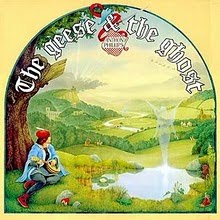



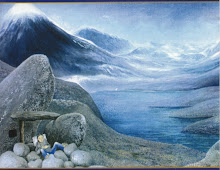

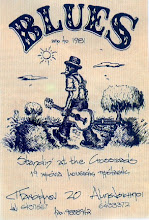

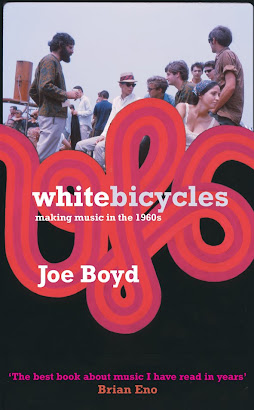
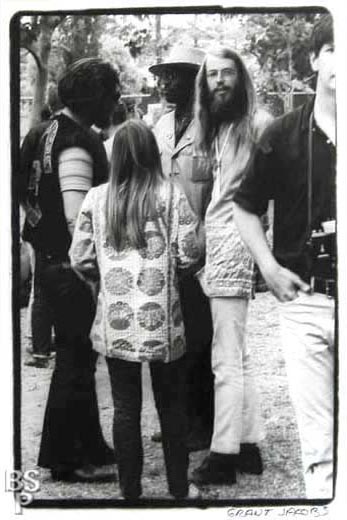
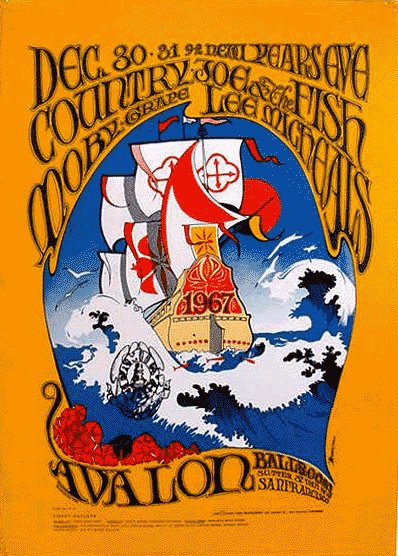
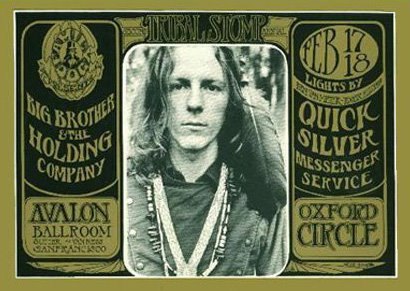
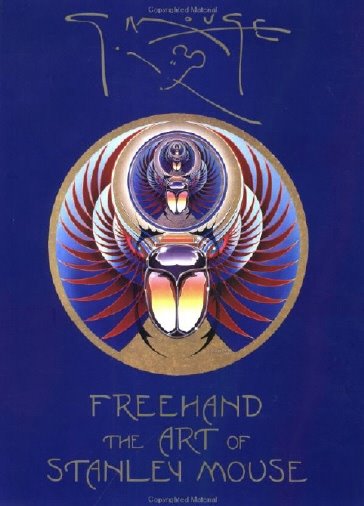.jpg)

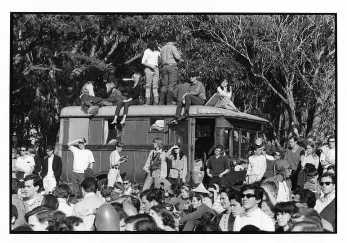




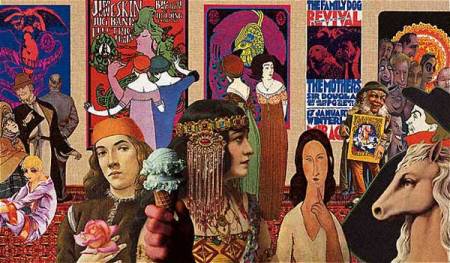.jpg)
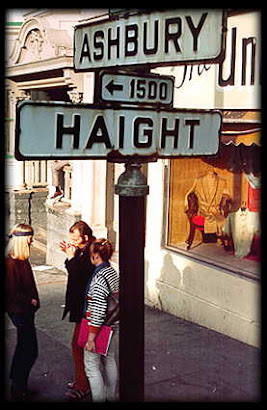
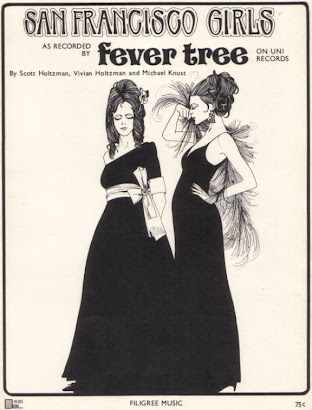
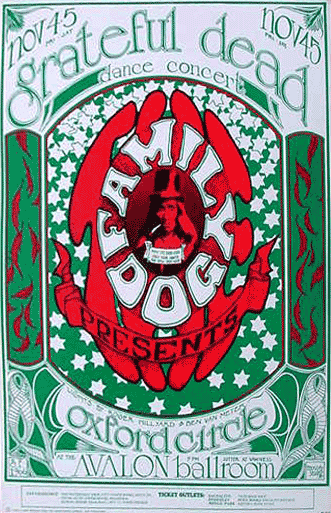
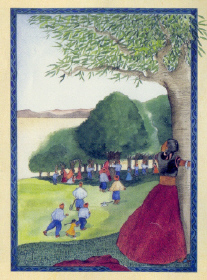
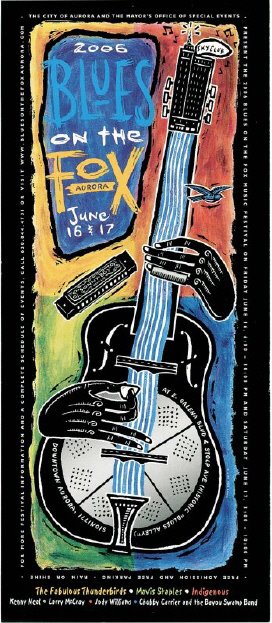


















%20@320.jpg)







































































+-+cover.png)














.jpg)




































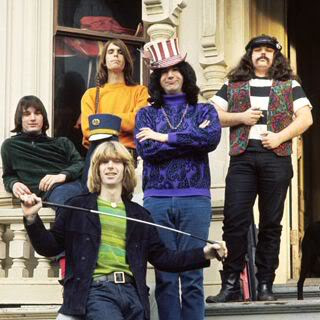






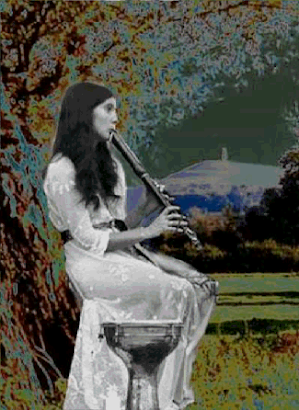













































.jpg)







